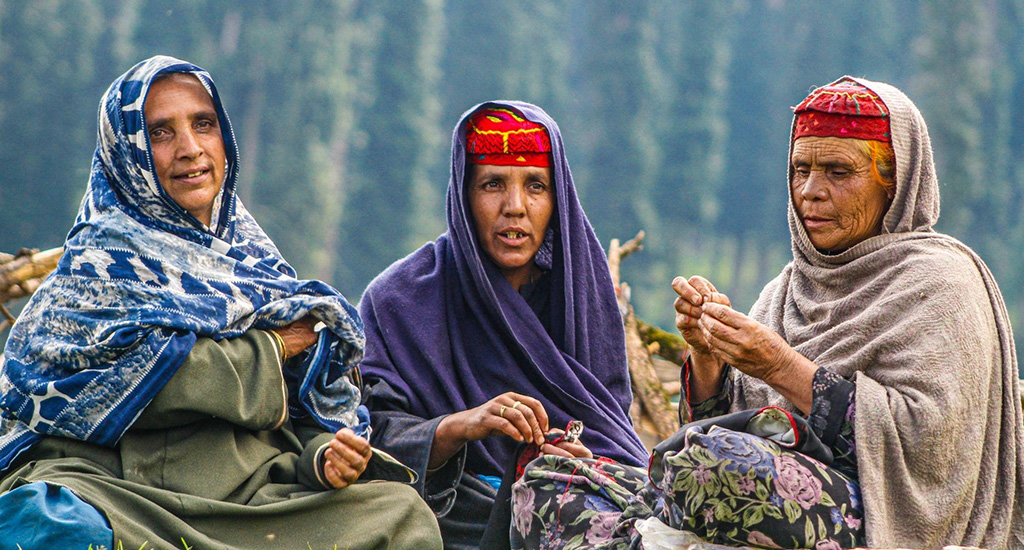
Gujjar women in Kashmir struggle to sustain the fading tradition of crafting traditional skullcaps, facing diminishing orders and changing fashion trends, as they call for cultural programs and support to revive their unique cultural heritage.
As per news agency—Kashmir News Observer (KNO), in Namblan village of Southern district of Pulwama, 65-year-old Zulaikha sits on the grass in front of her kotah (mud and wood house), stitching a skullcap. Despite receiving fewer orders, Zulaikha is content, as any order brings hope that the tradition will endure.
Gujjar and Bakerwal women, forming the third largest ethnic group in the region, have distinctive traditional caps known as “topi.” Stitched from cloth and embroidered with colorful threads, these caps hold cultural significance. However, the tradition is fading, especially among the younger generation influenced by global fashion trends.
Zulaikha, crafting skull caps since the age of 18, laments the disappearing traditions, attributing it to changing fashion preferences. Younger girls in the village, influenced by contemporary fashion, are hesitant to wear the traditional topi, fearing societal discrimination.
The shift in fashion trends has impacted the income of women in Nimblan, with fewer orders leading to decreased earnings. A decade ago, a Gujjar woman could earn Rs 5,000 to 7,000 per month, but now they earn a maximum of Rs 3,000, and not consistently.
Gujjar women said that there is a need for cultural programs to revive the tradition, urging the administration to take action. Social activists and youth welfare leaders also call for government support and cultural initiatives to preserve the traditional topi.
“In the modern world the essence of tradition often faces challenges. The beauty of our Gujjar women crafting skullcaps is more than just threads and fabric; it’s a connection to our roots. I believe if we weave our heritage into the fabric of modern times, these traditional caps can become not just an accessory but a symbol of pride for the younger generation,” he said.
Junaid appeals to the government to play a pivotal role in preserving this cultural legacy. He emphasizes the importance of promoting and celebrating the art of crafting traditional skull caps through widespread cultural initiatives.
Junaid believes that government support can reignite interest among the younger generation, fostering a sense of pride in their unique cultural heritage.
“Government must organize cultural programs so that the younger generation develops an interest towards our traditional attire,” says Danish Ali Tedwa, President of Gujjar and Bakerwal Youth Welfare in Pulwama. The possibility of fashion designers incorporating the traditional women’s skullcaps into haute couture is also suggested to revive this cultural heritage—(KNO)




